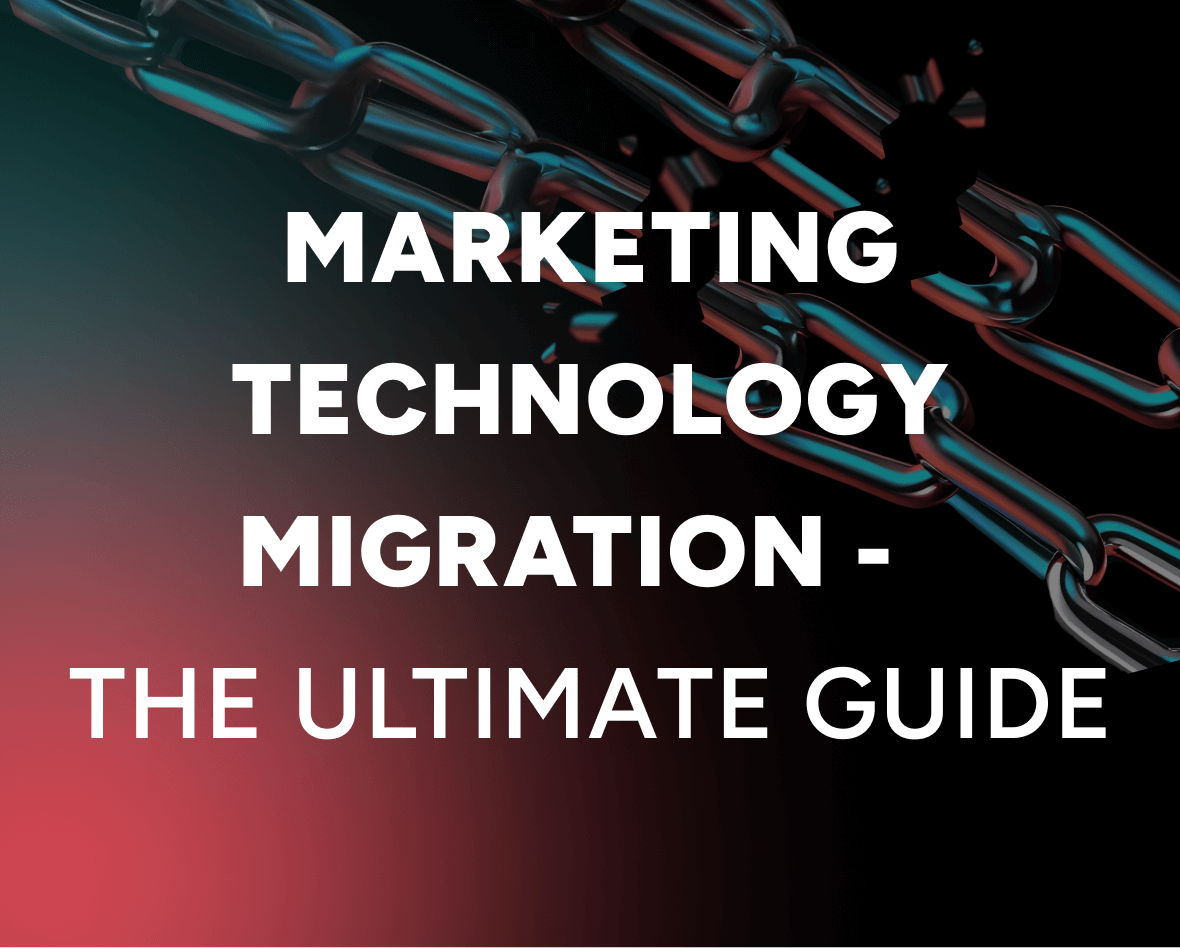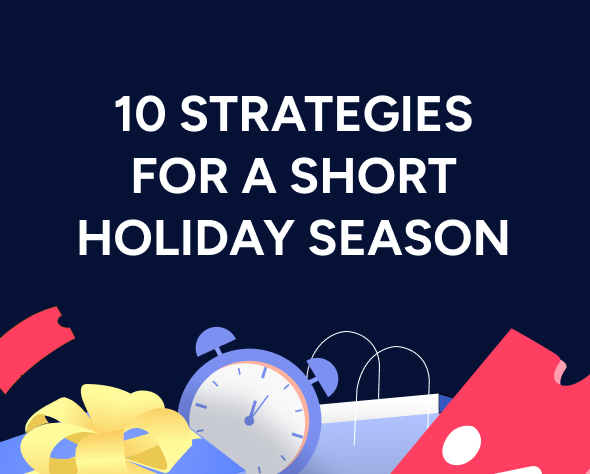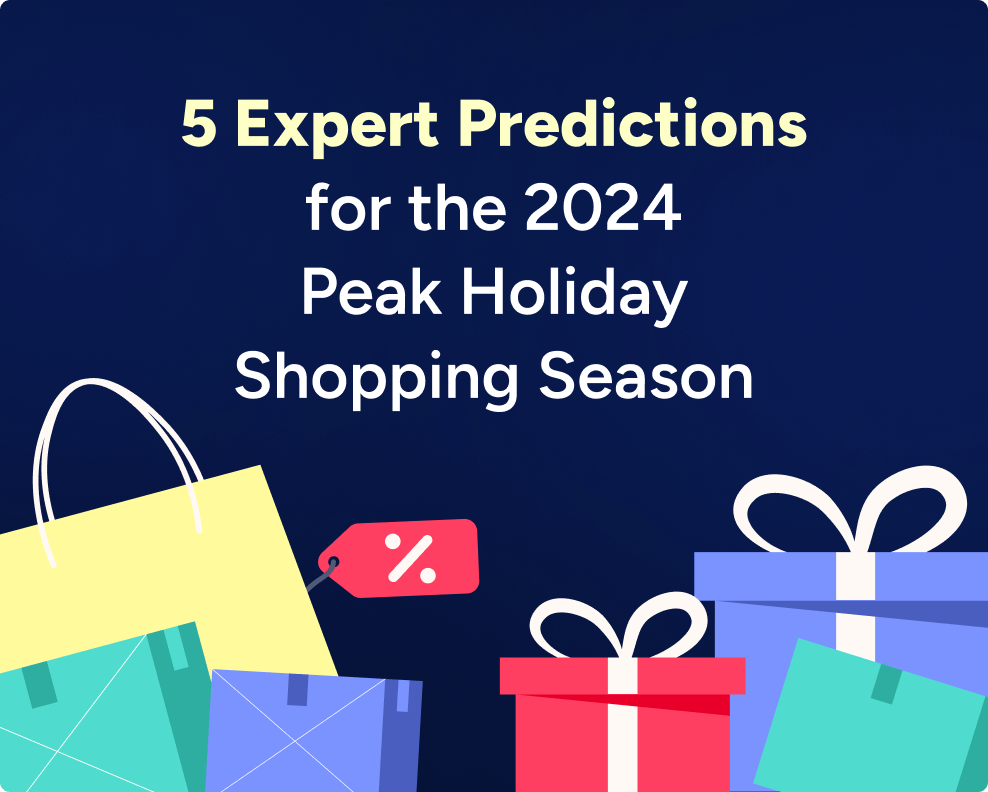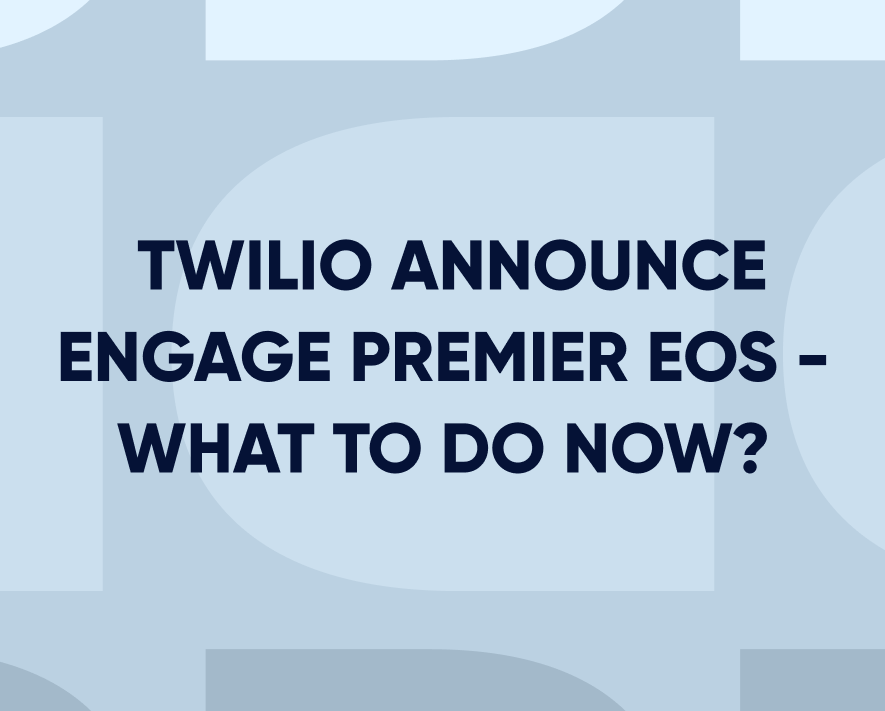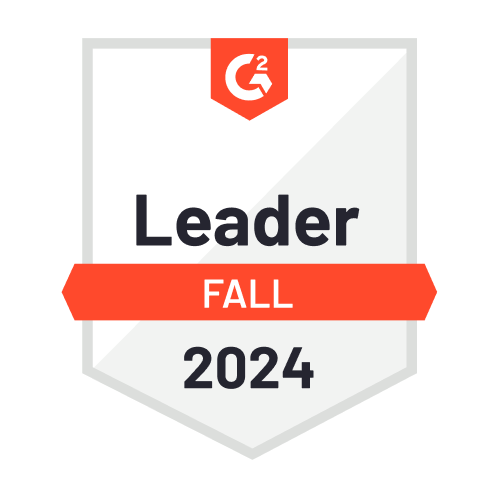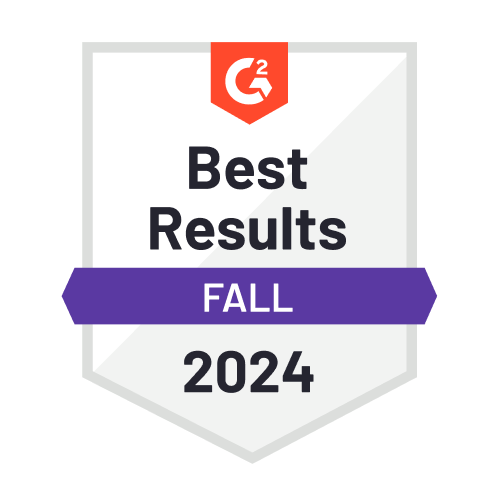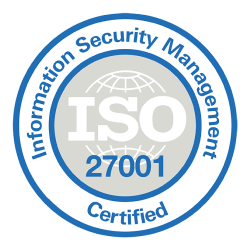AI marketing automation: The perfect match to supercharge your marketing campaigns
45% of online shoppers are more likely to shop on sites offering personalized recommendations. To keep your customers engaged and returning to your site, you need to deliver a personalized and engaging customer experience—every single time.
Updated on 16 Aug 2024
But creating meaningful experiences your customers love is only possible if you have the right tools. And AI-powered marketing automation is the solution.
In this article, we’ll look at AI-based marketing automation, including what “AI marketing automation” means, its benefits, capabilities, and challenges, and provide a step-by-step guide to choosing the right AI marketing platform for your brand.
Ready to learn everything you need to know about AI marketing automation? Let’s get started.
What is AI marketing automation?
AI marketing automation uses smart algorithms and machine learning to create marketing tasks quickly and more effectively. These AI-based programs help brands automatically orchestrate journeys, discover segments, create content, predict customer action, recommend products, and more—without spending hours and resources.
Different aspects of AI: predictive, conversational, generative, and NLP
There are many different types of AI, so let’s break them down:
Predictive AI: This technology analyzes historical data to predict future events. It helps businesses by anticipating customer behavior and market trends, assisting them in making informed decisions.
Conversational AI: This is responsible for the chatbots you encounter online shopping. It enhances online interactions by answering questions and providing support, making your online experience more efficient.
Generative AI: This aspect serves as a creative collaborator. Generative AI can generate content, such as writing articles or creating artwork. It’s a time-saver for content creators in marketing.
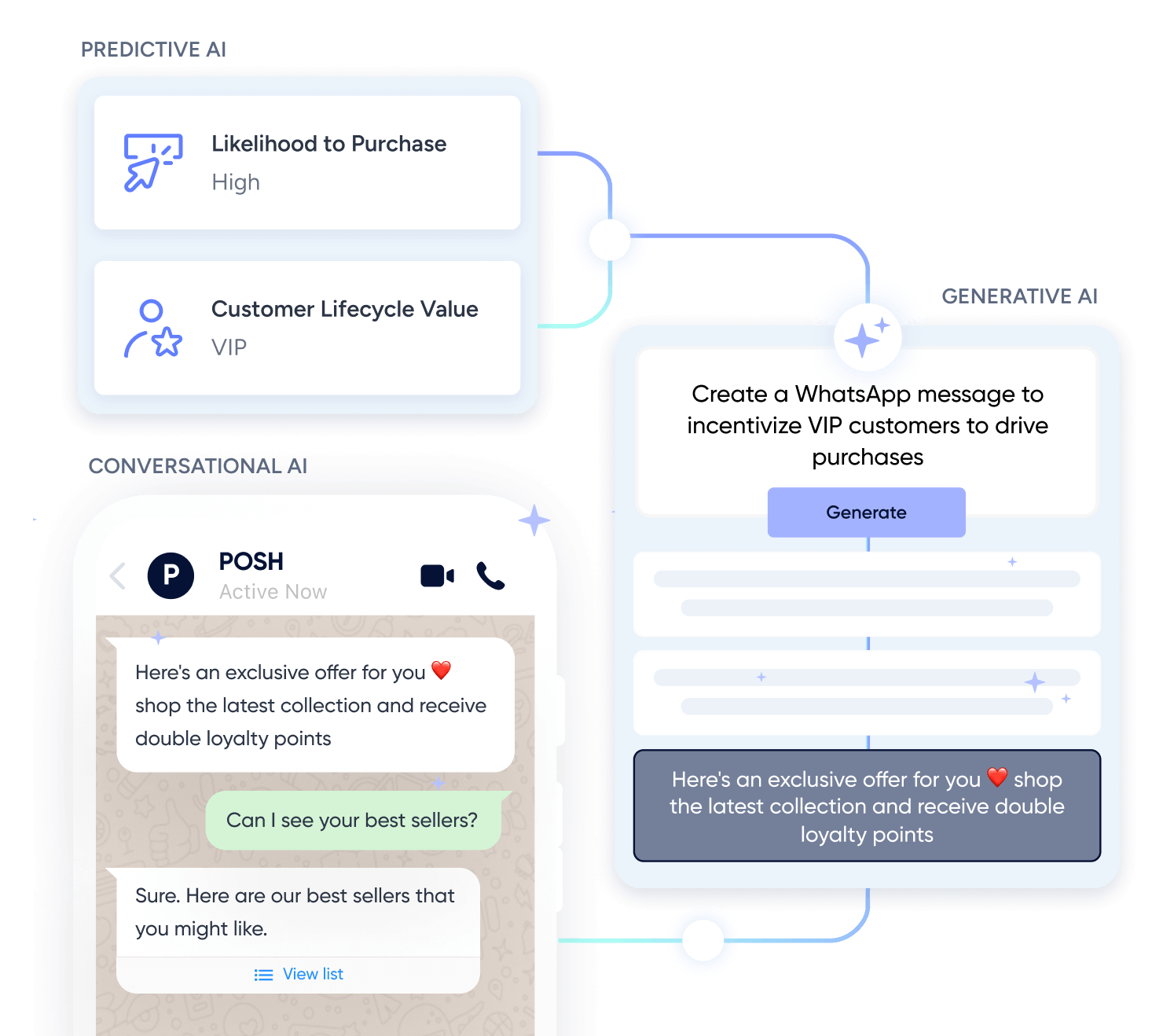
NLP (Natural Language Processing): NLP enables machines to comprehend and reply to human language, allowing the existence of voice assistants like Siri or Alexa. It is also applied in tasks like sentiment analysis on social media and customer service, enhancing digital interactions.
Traditional marketing automation vs AI marketing automation
Traditional marketing automation is straightforward. It handles tasks like sending emails, managing customer data, setting reminders, saving time, and ensuring smooth operations. However, it needs to adapt independently and operate based on predefined rules with limited flexibility.
On the other hand, AI marketing automation is an advanced system that goes beyond basic automation. It comprehensively understands your customers, analyzing your data to predict their behavior. This enables more effective targeting and better results. AI marketing automation continually learns and adjusts, constantly improving the efficiency of your marketing efforts.
5 Key benefits of AI marketing automation
So, why is AI-driven marketing essential for marketers to understand and use?
Well, for multiple reasons. Here are the top five:
- It helps deliver personalized experiences at scale: AI can help you personalize without creating different experiences for different audiences.
- It helps your entire team be more productive and efficient: AI handles repetitive tasks, reducing the manual workload and allowing you to focus on strategic planning and creativity.
- It can optimize your campaigns automatically: AI analyzes data to optimize campaigns and target audiences effectively, leading to higher conversion rates.
- It helps you gain deeper insights: AI provides real-time data and analytics, allowing businesses to make informed decisions and adapt quickly to market changes.
- It helps you improve real-time search: AI optimizes search functionality, instantly ensuring your customers find what they need.
Capabilities of AI marketing automation
So, how exactly does AI marketing automation help marketers work smarter and more efficiently? Let’s take a look:
You can A/B test and optimize for best results
AI runs multiple tests simultaneously, providing real-time results and recommending the most effective variations, enabling precise campaign optimization.
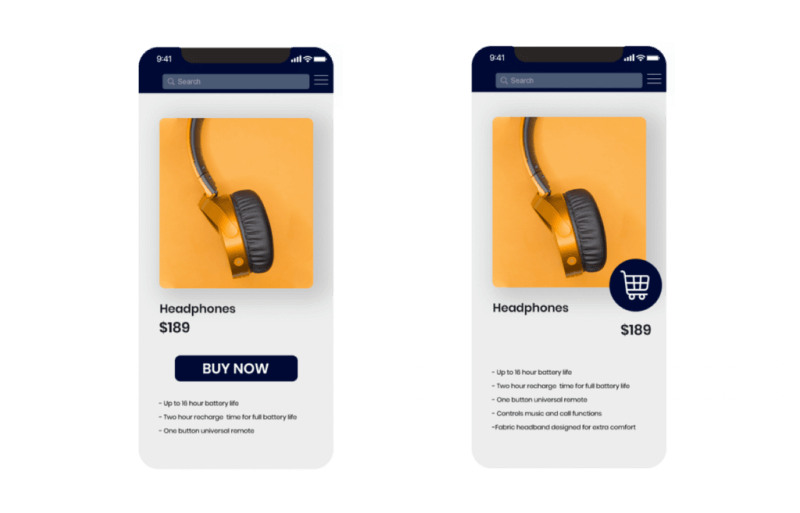
You can deliver omnichannel experiences at scale
Omnichannel strategies drive an 80% higher rate of incremental store visits. Customers expect omnichannel experiences from brands, and their expectations are increasing since brands create more enjoyable experiences every day.
AI manages customer interactions across various channels like email, social media, SMS, contact center software, and more. AI-powered omnichannel marketing automation ensures consistent messaging and channel engagement, resulting in a unified and enhanced experience.
You can optimize the search experience
69% of online shoppers go to the search bar when visiting ecommerce sites, but 80% leave due to a poor experience.
AI marketing automation tools can enhance the search experience on an online store by improving the relevance and accuracy of search results. AI tools equipped with NLP capabilities can understand and interpret natural language queries users enter. This allows for more intuitive and accurate search experiences, even when customers use colloquial language or misspellings.
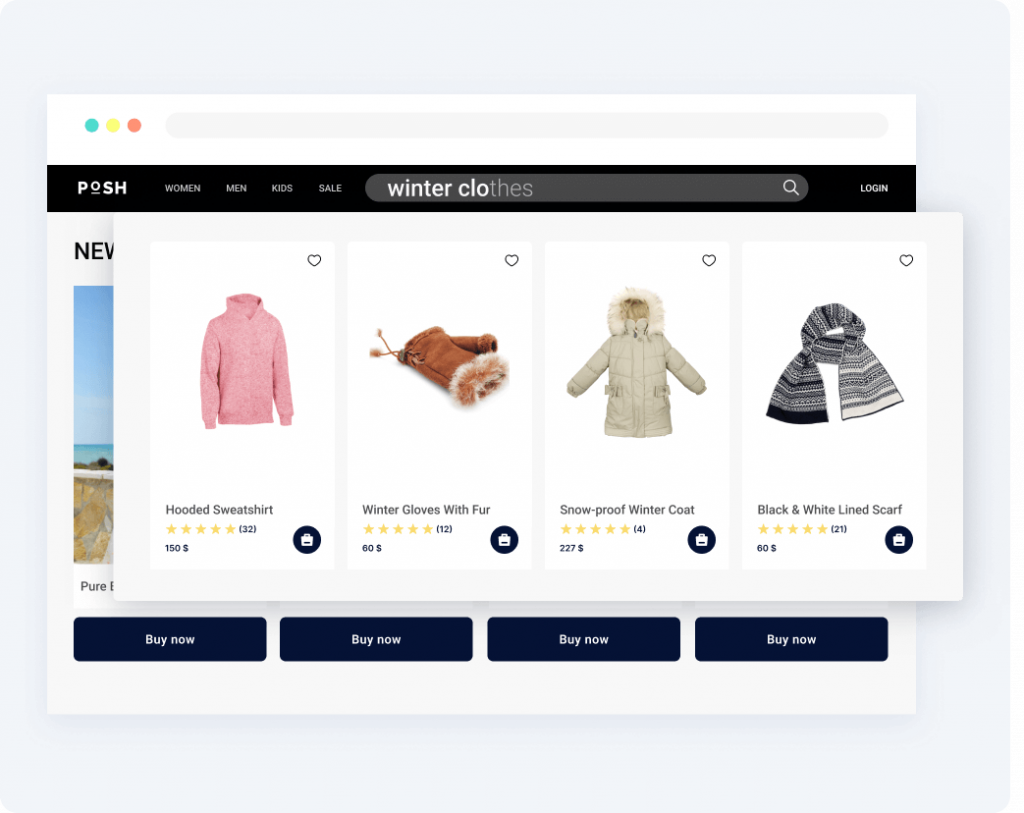
Additionally, AI tools can predict and suggest search terms as users type, helping to guide them towards relevant products and reducing the time taken to find what they’re looking for.
You can reduce churn with customer retention strategies
A 5% increase in customer retention can increase profits by up to 75%. Integrating AI-powered technologies can help to predict customer churn. AI identifies at-risk customers and suggests retention strategies, proactively engaging with customers to prevent churn.
You can provide product recommendations to increase sales
AI marketing automation tools analyze vast customer data, including past purchases, browsing history, demographic information, and behavioral patterns. These tools can provide personalized product recommendations to each customer, enhancing their shopping experience and increasing the likelihood of purchasing.
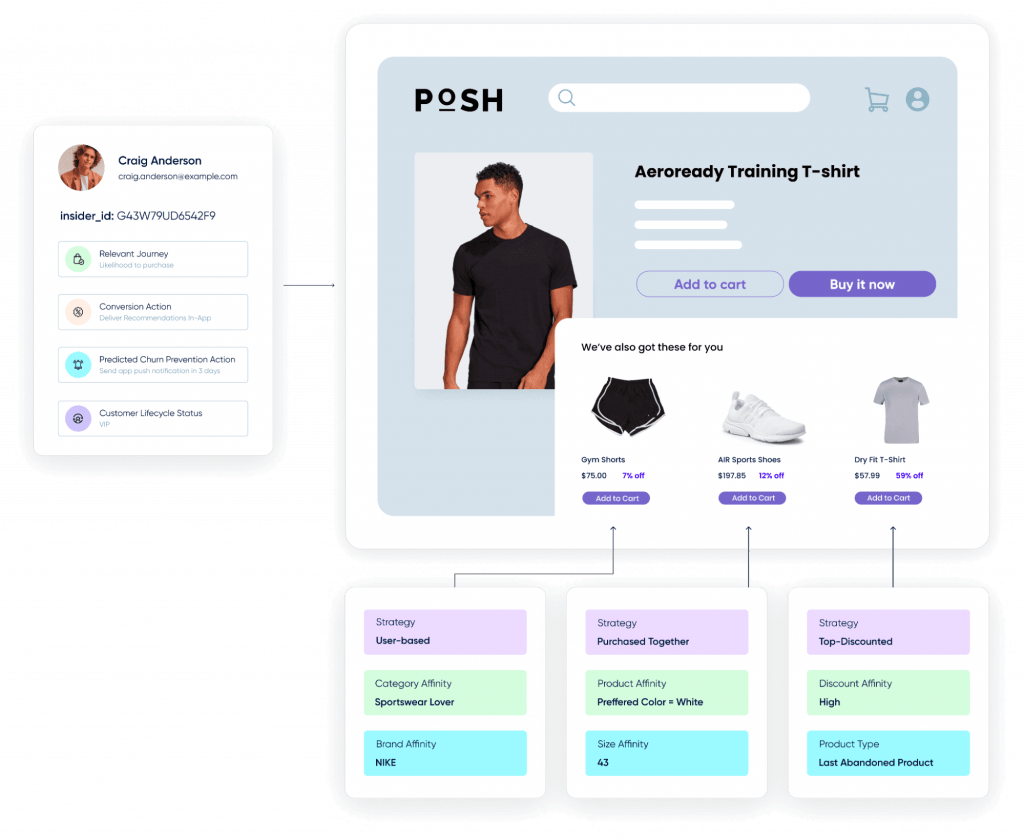
AI-powered recommendation engines use sophisticated algorithms to predict which products a customer is most likely to be interested in purchasing. These recommendations can be displayed prominently on the website, in email campaigns, or through targeted ads to increase sales.
Challenges of AI marketing automation
Despite the benefits, many marketing teams need help to work with AI tools successfully. This is often due to three critical roadblocks:
- Learning curve: Adopting AI solutions often requires a learning curve. You and your team need time to familiarize yourself with the technology, understand how to interpret AI-generated insights and integrate AI seamlessly into your existing workflows.
- Integration challenges: Integrating AI marketing automation into existing systems and processes can be complex. It may require changes to infrastructure and workflows, which can pose challenges for organizations.
- Scalability: As businesses grow, their marketing needs evolve. Ensuring that AI solutions can scale with the organization’s growth and changing requirements can be a concern.
How do you choose the right AI marketing automation partner?
Here are six critical steps for finding the right AI marketing platform for you.
- Define your goals and objectives
Begin by clarifying your marketing goals and the outcomes you aim to achieve through AI automation. Clear objectives will guide you to make informed choices, whether enhancing personalization, boosting ROI, or elevating customer engagement.
- Assess your current marketing stack
Evaluate your existing marketing tools and infrastructure. Identify any gaps or areas where AI can seamlessly complement your current setup. Ensure that your AI solution can integrate with your existing systems.
- Evaluate data handling and security
Pay close attention to how the AI platform manages data. Ensure that it follows data protection regulations and provides robust security measures to safeguard customer information.
- Uncover AI capabilities
Delve into the specific AI capabilities offered by the platform. Does it provide predictive analytics, personalization, content generation, or customer segmentation? Select a platform that aligns with your primary business needs.
- Examine user-friendliness
Put the platform’s user interface to the test. It should be user-friendly and intuitive to navigate. A long learning curve can hinder adoption and effectiveness; therefore, simplicity is key.
- Explore customer support and training
Evaluate the level of customer support and training offered. Reliable customer support is vital, especially during the implementation phase. Ensure your partner provides training resources to empower your team to leverage the platform’s full potential.
- Analyze scalability
Consider your future growth trajectory. Will the chosen AI platform scale in alignment with your goals? Confirm its ability to accommodate your evolving needs as your customer base grows.
- Stay informed about updates
Once you’ve selected the right platform for you, stay informed about updates and new features. AI marketing technology evolves rapidly, and staying up-to-date ensures you learn the latest advancements.
Insider’s Sirius AI™: The industry-leading AI platform for marketing automation
Sirius AI™, Insider’s patent-pending AI solution, leverages the capabilities of large language models and machine learning, including predictive, conversational, and generative AI for CX. With Sirius AI™, you can easily create relevant, timely, and trustworthy customer experiences.
From discovering segmentation possibilities to crafting customer journeys, generating content, and automating unstructured two-way conversations, Sirius AI™ enables you to deliver revenue-boosting customer journeys in minutes rather than days. This saves hours of manual effort and guesswork and empowers teams to work more productively, independently, efficiently, and swiftly.
With Sirius AI™, you can:
- Launch end-to-end CX automation: Sirius AI™ is a journey orchestration platform that streamlines customer journeys from start to finish, ensuring that every touchpoint is optimized and personalized. This end-to-end automation guarantees an omnichannel customer experience, strengthening brand loyalty.
- Leverage smart segmentation: Marketers can effortlessly segment their audience based on criteria, from demographics to behavior. This well-executed segmentation ensures the right message reaches the right audience at the right time.
- Use predictive segments: By using predictive analytics, you can identify and target customer segments likely to exhibit specific behaviors. This prediction allows you to tailor your strategies proactively.
- Deliver omnichannel journey orchestration: You can build customer journeys through cross-channel marketing such as WhatsApp marketing, SMS, email, and more. It coordinates every interaction cohesively, creating a seamless narrative that resonates with customers and increases engagement.
- Create content in seconds: Create high-quality, personalized marketing content at scale, from articles to artwork, enabling you to save time from manual tasks and ensuring you’ve more time for a consistent and engaging content strategy.
- Ensure localization: Tailor content and messages to suit different regions and languages, allowing you to connect with your audience effortlessly—wherever they are.
- Leverage A/B/n auto winner: You don’t just run A/B tests; take up to A/B/n Autowinner. This feature autonomously conducts multiple tests, analyzes real-time results, and recommends the most effective variations, enabling marketers to optimize campaigns with unparalleled precision.
- Launch customized recommendations: Provide customers with real-time, hyper-personalized product recommendations based on their behavior and preferences. This dynamic personalization enhances cross-selling and upselling opportunities, ultimately increasing revenue.
- Deliver optimized search results with Eureka: Optimizes search functionality, ensuring customers find what they’re looking for effortlessly. It’s like having an intelligent search engine that instantly understands user intent and delivers relevant results.
- Leverage conversational CX: With conversational AI, chatbots provide instant customer support and engagement. It’s like having a tireless support team available around the clock, ensuring customers receive assistance promptly and enhancing their overall experience.
While developing Sirius AI™, we kept a fundamental principle in mind: it’s not solely about boosting marketers’ productivity but delivering real, successful customer outcomes. This approach accelerates marketers’ progress toward their objectives, improving campaign performance and ensuring user satisfaction.
By prioritizing results, Sirius AI™ aligns itself with businesses’ strategic goals, guaranteeing that the investment in AI yields substantial and measurable advantages.
Interested in discovering how Sirius AI™ can benefit your business? Schedule a demo today.
FAQ
To use AI in marketing, start by collecting and analyzing customer data to gain insights, then use AI algorithms to personalize content, recommendations, and advertising. Incorporate chatbots and virtual assistants to enhance customer support and engagement.
When implementing marketing automation and AI, set clear objectives and identify key performance indicators (KPIs). Integrate AI-powered tools for data analytics, segmentation, and content optimization. Continuously refine your strategies based on AI-generated insights.
AI drives marketing automation by automating repetitive tasks, optimizing ad targeting, and enabling dynamic content creation. Machine learning algorithms help predict customer behavior, allowing for more effective lead nurturing and conversion.
AI will affect email and marketing automation by improving personalization, increasing email open and click-through rates, and reducing unsubscribes through targeted content. AI marketing automation isn’t limited to emails; you can also empower SMS marketing campaigns. AI-driven chatbots will provide real-time customer support, enhancing user experience and engagement in automated marketing campaigns.

